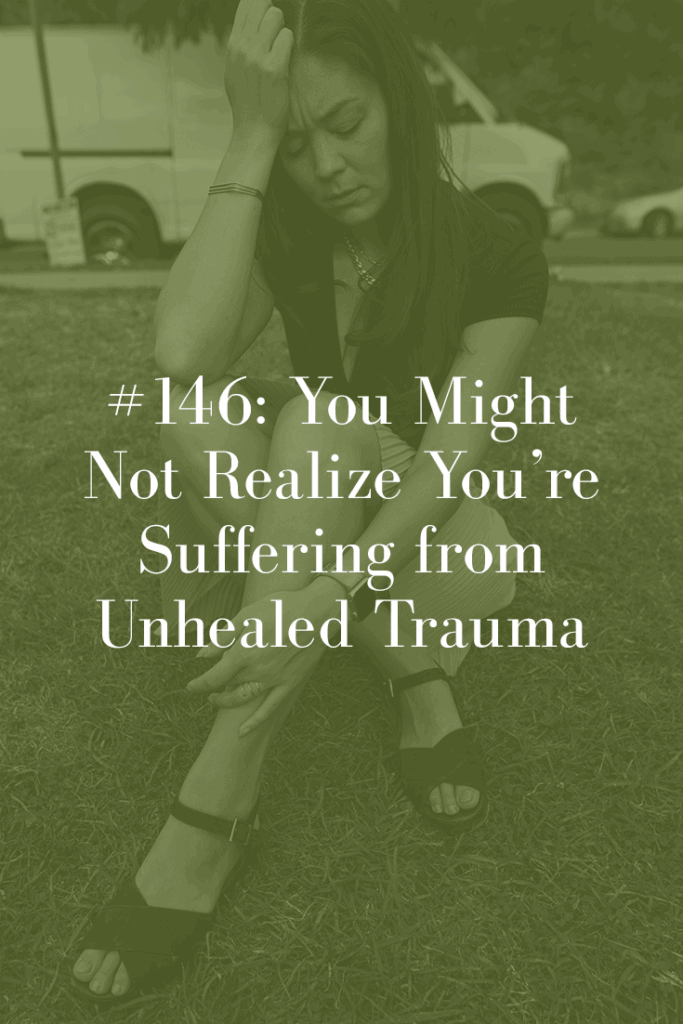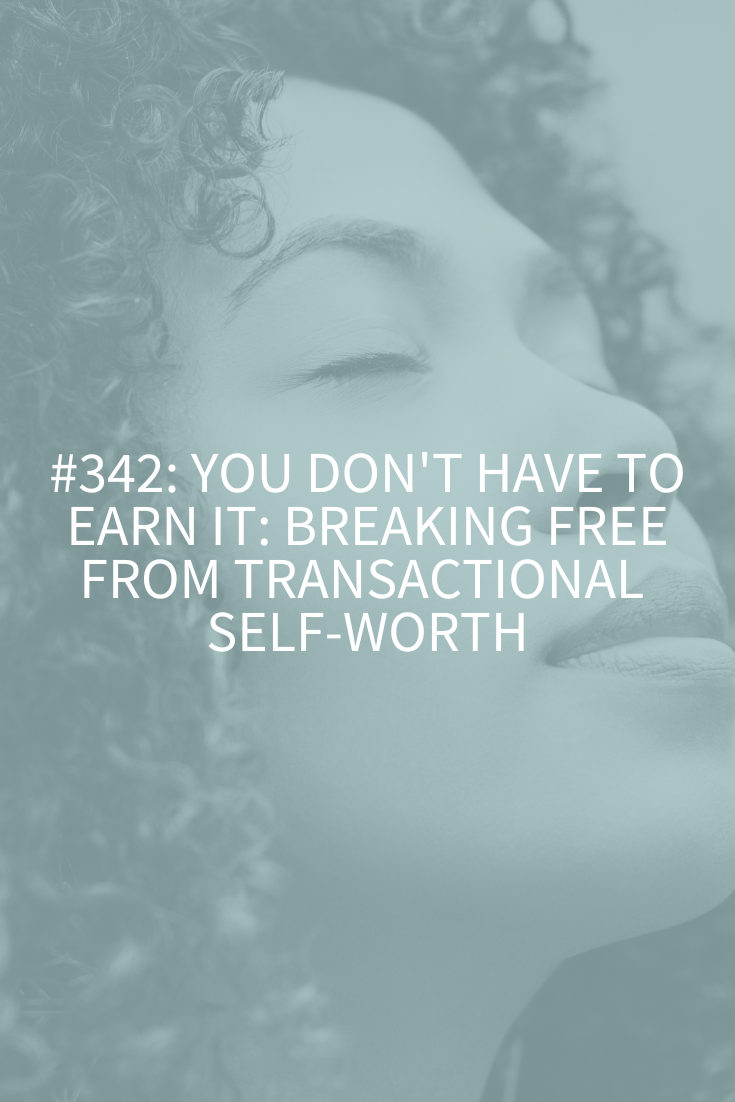
Want to read the more in-depth version? Click here to read the blog!
When you hear the word trauma you might be thinking, “Well, that doesn’t apply to me. I’ve never been the victim of a violent crime or in a war.” But defining any psychological trauma can be hard because it’s such an individual experience. I’ve been working with people for over 35 years, and I can tell you that what traumatizes you might not traumatize someone else.
This is why you might not realize you’re dealing with unhealed trauma, because you or someone else might be minimizing your experience. (You say to yourself: “I’m over-reacting, that wasn’t a big deal” or your brother says: “I grew up in the same house you did, and it didn’t bother me!” Today I’m going to cover the 4 signs of unhealed trauma and how it might be ruining your relationship.
Love the podcast? I’d be so grateful if you left a review! Just launch Apple’s Podcast app on your mobile device, search for the Relationships Made Easy podcast, and scroll down to rate and review!
How Do You Define Trauma Exactly?
Trauma is caused by either one harmful or distressing event or experience or a series of such experiences that impact your ability to cope and function in a healthy way.
Trauma Changes Your Brain
It’s common for people who’ve experienced trauma to have brain changes, which result in hypervigilance, spotty memory, emotional reactivity and poor impulse control. Traumatic stress has been associated with lasting changes to the amygdala, hypothalamus, hippocampus, and prefrontal cortex:
Witnessing a Trauma
Unhealed trauma can also be due to witnessing a trauma. Research has shown that being exposed to trauma can create changes in the brain making someone “overreact” to a sound, sudden movement or facial expression years after the event.
But How Does It Affect My Relationship Now?
When you’ve got unhealed trauma of any kind, you’re going to experience triggers in your relationship(s) but not realize you’re even being triggered (especially if you’re not thinking you’ve even experienced trauma)! Your partner will unintentionally do something, you get triggered and “overreact” and then end up feeling like you’re crazy!
Here Are 4 Signs That You Might Have Unhealed Trauma:
1. Major Trust Issues
This can show up everywhere! Maybe you find yourself no longer listening to your parents’ advice or thinking your friends are full of crap when they offer suggestions for how to move on. You think that therapy is just people getting paid to listen to your problems. Or maybe you get into a relationship but don’t trust your partner. Maybe you’re constantly checking their phone to see what they’re really up to or you don’t believe them when they say they love you. You basically don’t feel safe in your relationship. Doubt starts to show up everywhere, which brings us to sign #2…
2. Low Self-Esteem
If you’ve been in a traumatic relationship, you end up not trusting yourself (How could I have picked that guy? What was I thinking? Why did I stay with her for so long?). You feel like you can’t trust your decisions or your own judgment. This often extends past relationships and into work and other areas of your life. You lose confidence in yourself and don’t feel safe with your own thoughts and feelings.
3. Emotional Stuckness
Basically, something will trigger you and you’ll either get stuck in an “off” or “on” position. The “off” position shows up as exhaustion or fatigue, emotional numbness, disconnection and disassociation. Or, you might get stuck in an “on” position which results in what we call “emotional flooding.” Maybe you drive by the restaurant you and your ex used to frequent and all of a sudden you’re crying uncontrollably. Or maybe you overreact when you’re confronted by a friend or coworker and become enraged. This is emotional flooding.
4. Annoying Physical Symptoms.
There’s been a lot of research showing the physical toll unresolved trauma has on the body. Mostly, it all seems to stem from being on high alert all the time. Our bodies simply weren’t built for that; you were only supposed to experience these types of physical responses in the five minutes before you died – not for hours a day, year after year!
While I strongly recommend therapy if any of these signs are familiar to you or striking a chord somewhere, you can also use grounding techniques to help stop your fight/flight/freeze response from hijacking your brain. Enter your name and email below to grab my free Grounding Exercises!
RESOURCES
3 Keys to Building Trust in Your Relationship
8 Ways to Build Your Confidence and Self-Esteem
RESEARCH
Traumatic Stress: Effects on the Brain
“Past Trauma May Haunt Your Future Health,” Harvard Health Online, February 12, 2021.












